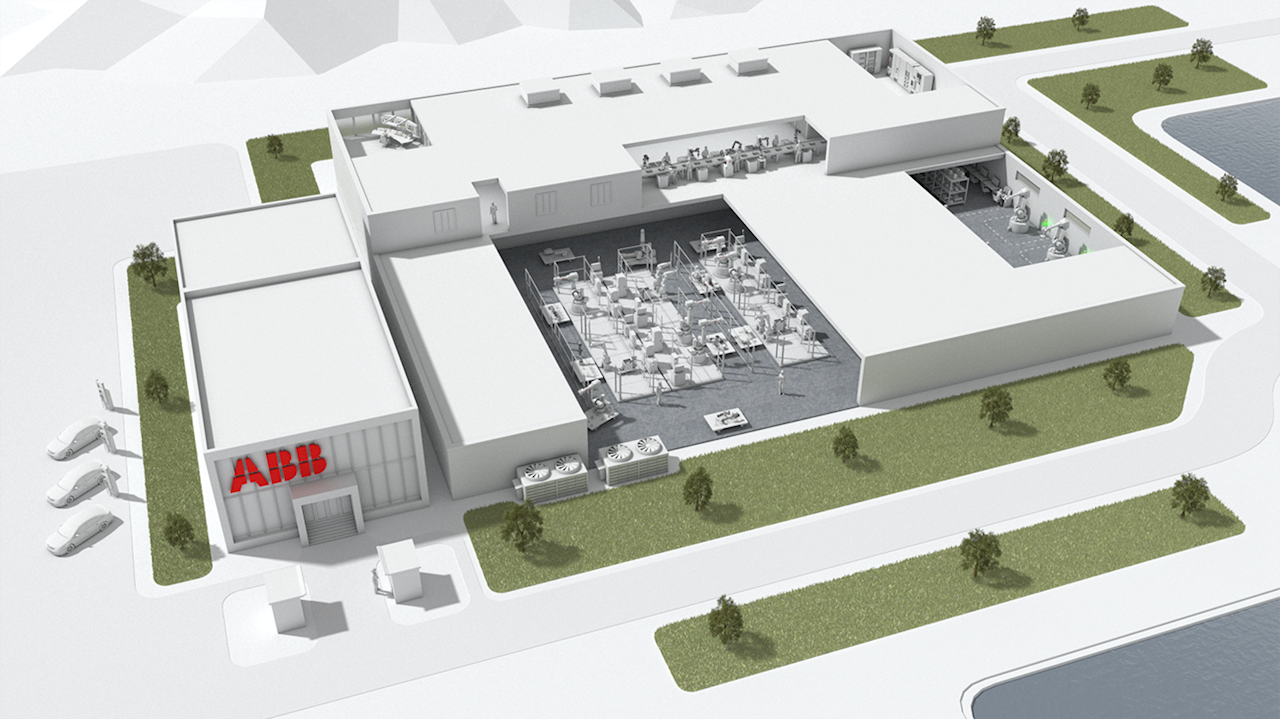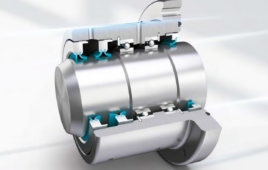ABB announced they’re building a $150 million, automated, flexible robotics factory in Shanghai, China. The project will combine the company’s connected digital technologies, collaborative robots, and artificial intelligence (AI) research to build an advanced and sophisticated “factory of the future.”
To help further ABB’s AI developments, the project will also create an onsite R&D center.
The factory will facilitate human-robot collaboration, islands of automation workflows, and robots making robots, as seen in the video below. According to ABB, the factory will increase the types and variants of robots that can be made onsite, which will lead to fast and efficient customization to suit specific client needs.
“The concept behind this factory is the same advice we give our customers every day: invest in automation solutions that provide flexibility and agility to grow in whichever direction the market goes,” says Sami Atiya, president of ABB’s Robotics and Motion division. “ABB is proud to help our customers in China and around the world with solutions that take full advantage of the latest technologies to meet the challenges of mass customization, faster cycles, and constant change that have become the new normal—even in our own factories.”

(Image Source: ABB)
The Shanghai factory will be modeled as a digital twin, allowing engineers to monitor and assess day-to-day operations in real time. This includes the integration of ABB Ability™ Connected Services, which enables the analysis of robot health and performance. In the end, the factory will be able to quickly detect machine anomalies, according to ABB.
Moving away from fixed assembly lines, the floorplan will use a design centered on interlinked automation islands. As part of ABB’s logistics automation solutions, robots could be followed autonomously by automatic guided vehicles during production, providing parts from localized stations. The shift in factory design promotes flexibility to mirror the potential changes in China’s robot market.
In addition, ABB’s SafeMove2 software will be utilized throughout the plant. The software enables humans and robots to coexist safely when in close proximity. The company’s YuMi robot will also be utilized, tasked with small parts assembly.
According to ABB, one of every three robots sold worldwide went to China in 2017, making them the world’s largest robotics market. ABB currently maintains the position as China’s primary robotics manufacturer.
The flexible robotics factory is expected to begin operations in 2020.
Filed Under: Industrial automation, Robotics • robotic grippers • end effectors




